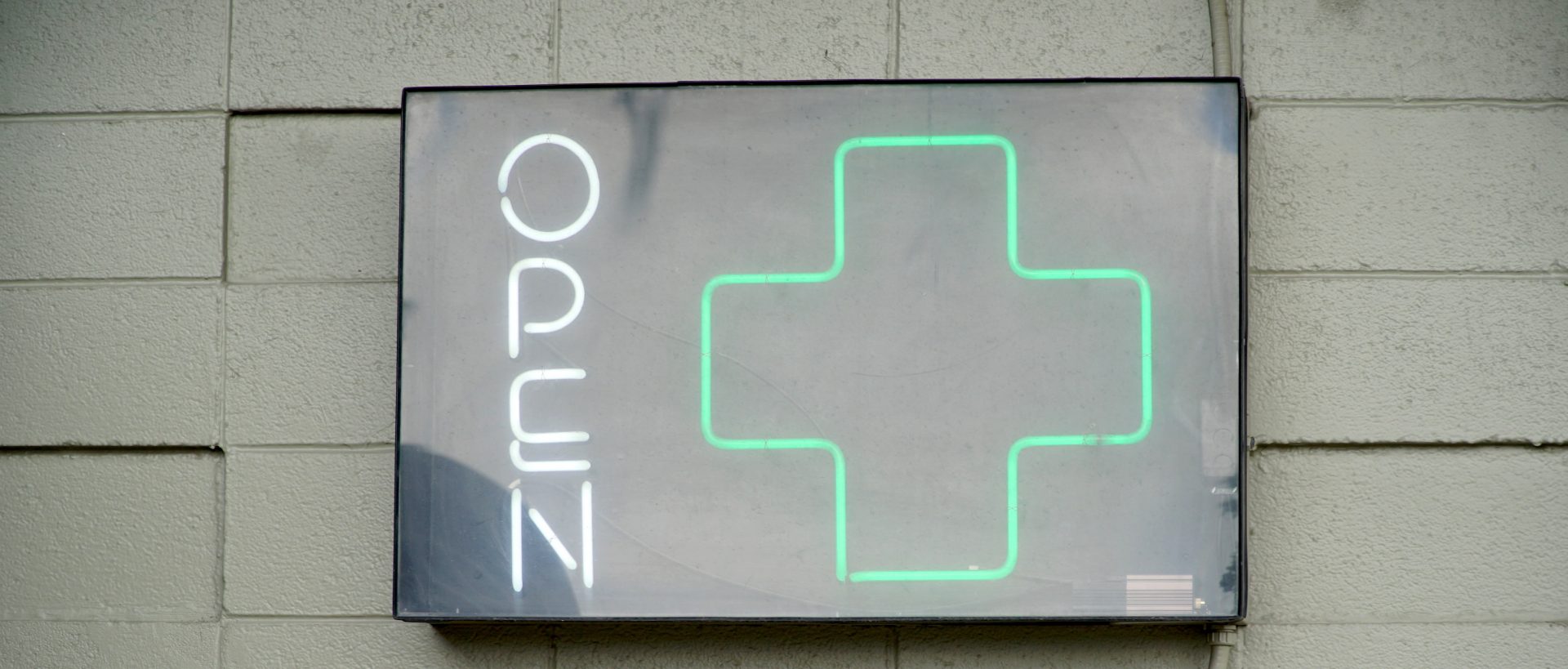
A sign advertises recreational and medical marijuana outside a dispensary in Colorado.
David Anderson


A sign advertises recreational and medical marijuana outside a dispensary in Colorado.
David Anderson
Pregnant women would be barred from obtaining a medical marijuana license if voters on Tuesday approve State Question 788, under proposed rules under consideration at the Oklahoma State Department of Health. The draft rules would also restrict people on probation and those recently convicted of a felony from obtaining a commercial license.
Five working groups, comprised of state department of health officials, helped write the 63 pages of proposed rules, which StateImpact obtained through a request under Oklahoma’s Open Records Act. Law enforcement agencies are also working with the health department to make sure such rules address their public safety concerns.
The rules are subject to change, but a draft dated June 19 stipulates that only doctors of medicine or osteopathic medicine, whose Oklahoma medical license is in ‘good standing’ can recommend patients for a medical marijuana license. Doctors who recommend medical marijuana could not hold a ‘commercial interest’ in any entity that grows, processes or dispenses medical marijuana.
The doctor and patient must have a ‘bona-fide’ physician-patient relationship, under the proposed rules, and have conducted a physical exam, including discussing the risks of marijuana consumption. Physicians must also make a diagnosis that medical marijuana would help alleviate a patient’s symptoms, though no qualifying conditions are specified. The patient then has 30 days to file an application and fee with the state health department for a two-year license.
Gov. Mary Fallin this week said she’d convene a special legislative session so lawmakers could write new regulations in the event Oklahomans approve SQ 788, which polls suggest a majority of voters support.
An estimated budget sent to the Legislature by the health department suggests enacting the new regulations could cost the state about $3.6 to $3.8 million during the first year. A special 7 percent sales tax on medical marijuana, as well as all of the licensing fees, would be collected to pay for the state’s oversight.
Under the proposed rules, medical marijuana would be subject many of the same restrictions as tobacco when it comes to smoking or consuming it in public places. Medical marijuana could not be consumed around minors, or any grow facilities or dispensaries.
Licensed dispensaries could only be open from 10 a.m. to 9 p.m. Monday through Saturday, according to the rules under consideration, and would be housed in bunker-like buildings with security measures including 24-hour video surveillance and fencing.
Dispensaries couldn’t be located within 1,000 feet of the main entrance of a school, no minors would be allowed in, and dispensary operators would be required to keep records of every sale for the last seven years. They’d also be subject to surprise inspections by regulators.
The draft rules also require all commercial license holders to undergo a criminal background check, including fingerprinting.
Transportation of medical marijuana from grow facilities to dispensaries would be controlled. The draft rules require medical marijuana be moved in a locked container in nondescript vehicles.
The draft rules also open the door for medical marijuana research in Oklahoma, under a commercial license available through the state, and would be barred from employing anyone under the age of 21.
To oversee the new industry and regulatory system, the draft rules call for the creation of a Medical Marijuana Industry Expert Board. The group of 12 Oklahomans, appointed by the state health commissioner, would meet by Dec. 1, 2018, and by the beginning of July in subsequent years to draft any rule changes — but final adoption would be at the discretion of Oklahoma’s health commissioner.
Editor’s note: The article was updated to clarify that under the draft rules, people on parole and those with recent felony convictions are only barred from commercial medical marijuana licenses, not patient licenses.